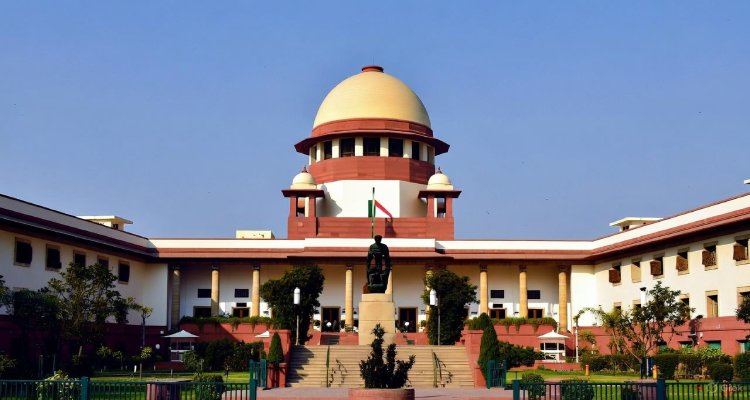Supreme Court Rejects ‘Deemed Assent’ Concept, Upholds Governor and President’s Discretion on Bills

The Supreme Court ruled that “deemed assent” to Bills by Governors or the President is unconstitutional, reaffirming separation of powers and restricting judicial overreach.
The Supreme Court of India has recently clarified that the concept of “deemed assent” to Bills by Governors or the President, which had been invoked in a prior judgment, is not a constitutionally valid principle and amounts to an impermissible judicial takeover of executive functions. This ruling comes after controversy arose over Governors, especially in states like Tamil Nadu, withholding assent to Bills passed by state legislatures.
Introduction
The Supreme Court has ruled that the judiciary cannot impose timelines on Governors or the President to grant assent to Bills passed by state Assemblies, and the concept of “deemed assent” does not exist under the Indian Constitution. This decision rejects the earlier April 2025 ruling that had treated certain Bills as “deemed assented” using Article 142 powers, which now is said to violate the doctrine of separation of powers and the constitutional scheme under Articles 200 and 201.government.economictimes.indiatimes+2
Background and Context
Earlier in April 2025, a two-judge bench ruled that the Tamil Nadu Governor’s withholding of assent to 10 Bills was illegal and deemed those Bills as having received assent. This was done under Article 142 of the Constitution, which empowers the Supreme Court to pass any order necessary for complete justice. However, this led to a Presidential Reference to a larger five-judge Constitution Bench, which reassessed the validity of imposing timelines or deemed assent.economictimes.indiatimes+2
Main Developments
The Constitution Bench overruled the earlier April decision, holding that judicially imposed timelines on Governors or the President violate constitutional principles. The Court emphasized that the Governor or President have only three options under Articles 200 and 201: to assent to the Bill, to reserve it for the President’s consideration, or to withhold assent and return the Bill to the legislative assembly with comments. The Court emphatically stated that “deemed assent” does not exist as a constitutional concept because it would mean substituting judicial authority for executive authority, which goes against the separation of powers—a basic structure of the Constitution.theleaflet+2
The Court clarified that while prolonged, unexplained delay by Governors or the President may justify limited judicial scrutiny, courts cannot usurp these constitutional offices’ decision-making power by declaring Bills as deemed assented. The exercise of constitutional powers by these authorities cannot be substituted by the Supreme Court even under Article 142.socialnews+2
Article 142 Explained
Article 142 empowers the Supreme Court to pass orders necessary to do complete justice in any cause or matter before it, enforceable throughout India. It allows the Court to fill legal gaps or enforce rights when existing laws or remedies fall short but does not authorize the Court to substitute constitutional functions of other authorities such as Governors or the President.economictimes.indiatimes
Expert and Public Reaction
Legal experts see this as a reaffirmation of the constitutional separation of powers, protecting executive authority from judicial overreach. The judgment has sparked discussions on federalism and the delicate balance of power between state legislatures and Governors, especially in cases of political conflict.
Impact and Implications
This ruling reinforces the Governor’s constitutional role in the legislative process, preventing courts from imposing deadlines or assuming their role via deemed assent. It underscores that any delay by Governors or Presidents must be dealt with through political or limited judicial interventions respecting constitutional boundaries. State legislatures challenging delayed assent will not find relief in deemed assent but may seek other constitutional remedies subject to strict judicial limits.barandbench+3
Conclusion
The Supreme Court’s recent judgment clarifies that the concept of deemed assent of Bills is alien to the Indian Constitution and unconstitutional as it undermines the separation of powers. While Governors and the President must act without undue delay, they retain the exclusive constitutional authority to grant or withhold assent within the options provided by Articles 200 and 201. The judiciary’s role is to respect these boundaries and intervene only within constitutional limits, preserving the balance of power integral to Indian democracy.livelaw+2
Disclaimer: This article is for informational purposes only and does not constitute legal advice.










